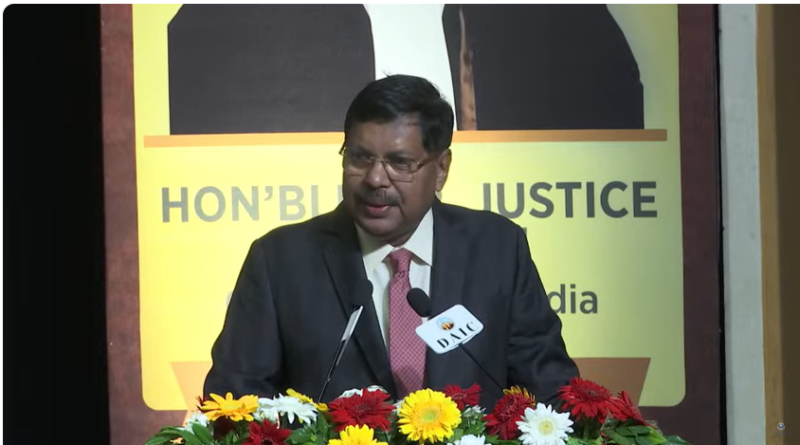CJI BR Gavai, Australia’s CJ Stephen Gageler Drive Arbitration Reform Agenda Across Borders
(By Syed Ali Taher Abedi)
New Delhi, September, 19, 2025— Speaking at the Delhi Arbitration Week 3.0, Chief Justice of India BR Gavai underscored the urgent need to make arbitration a truly effective tool for commercial efficiency. He emphasized that for arbitration to achieve its intended purpose, there must be a level playing field between large corporations and small businesses, backed by legislative measures that benefit all stakeholders equally.
“While we have made significant strides in establishing ourselves as a prominent commercial and legal destination, there is still room for growth. One area that requires attention is ensuring a level playing field in arbitration between larger corporations and smaller businesses, particularly micro, small, and medium enterprises. Although legislative and policy initiatives have been promising and commendable, it is essential to expedite their implementation and benefits to all stakeholders. By doing so, we can unlock the full potential of arbitration as a tool for commercial efficiency, rather than letting it become a source of prolonged disputes.”
The CJI noted that while arbitration is designed to be faster and less procedurally burdensome than litigation, high costs and limited accessibility continue to discourage parties from opting for it. “We must address the question of affordability and ensure arbitration does not become an exclusive domain of big players,” he remarked.
“We are also working hard to confront the question of cost and accessibility and leading by example rather than catching up to the rest of the world. Arbitration is designed to be faster and less procedurally onerous than litigation. While arbitration holds great promise, there’s an opportunity to bridge the gap between its potential and the current experience. By addressing challenges like arbitrator fees, procedural expenses, and timelines, we can make arbitration more efficient and accessible for all parties.”
The event also saw participation from Justice Stephen Gageler of the Australian High Court and Justice Devendra Kumar Upadhyay, Chief Justice of the Delhi High Court.
Calling for judicial restraint in arbitration matters, the CJI pointed out that minimal court interference boosts confidence in the arbitral process. Drawing comparisons with jurisdictions like Australia and the UK, he noted that predictability and restraint from courts there have allowed arbitration to flourish. “It is not a sign of abdication but of maturity and strength,” he observed, stressing that India must move in this direction.
“This creates a paradox where the very parties who most need quick and affordable remedies are driven away from arbitration due to the associated expense. Therefore, by streamlining processes and managing costs, we can unlock the full benefits and potential of Arbitration, for companies and individuals alike.”
While acknowledging that a significant volume of arbitration-related disputes continues to reach Indian courts, the CJI clarified that this does not necessarily signal a lack of faith in arbitration, but rather stems from trust in the judiciary’s role when intervention is necessary.
Concluding his address, the CJI described arbitration as “not merely a legal mechanism but a trust-building exercise—a cornerstone of commercial certainty and a bridge between cultures and economies.”




